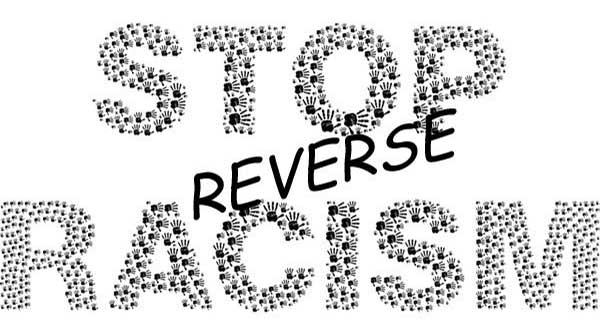Parents are fighting back against the Ontario School Board’s Critical Race Theory indoctrination
 Recently, Peel district schools reportedly purged all library books written before 2008. But this incident is just one of many questionable moves made by schools across Ontario in recent years.
Recently, Peel district schools reportedly purged all library books written before 2008. But this incident is just one of many questionable moves made by schools across Ontario in recent years.
For example, in mid-summer 2022, the Elementary Teachers’ Federation of Ontario began distributing new lesson plans that aimed to indoctrinate children into “white privilege” ideology. The lesson plans were to be taught in primary, junior and intermediate grades across the province, and were an extension of the Federation’s existing and larger “White Privilege project”.
This Ontario curriculum teaches that, if students are white, their successes are not primarily achieved through personal effort but are bestowed upon them because of the colour of their skin. Conversely, students of colour are taught that, despite personal effort, their chances of success are significantly diminished because society is systemically racist. Tellingly, these instructions always avoid mentioning that Canadians of East Asian and several other non-white ethnic groups have for many years achieved higher average income and educational attainment than Caucasians.
 |
| Related Stories |
| What is Critical Race Theory anyway?
|
| Four critical things to know about critical race theory
|
| What Rishi Sunak’s rise says about skin colour: It’s irrelevant
|
Another component of white privilege curriculum teaches white students that even if they hold no conscious animosity toward non-whites, unconsciously they embody racist tendencies which put them, intractably, in the role of oppressor. Adherents continue to push the notion of unconscious racial bias, and instruct their white students to “check their privilege”, even though it has been debunked by science. In this act, those with white skin are taught they can lessen their oppressiveness by recusing themselves from opportunities or silencing themselves in public conversations.
The concept of white privilege is one part of a larger curriculum initiative known as “anti-racism” education – although the term “anti-racism” is somewhat misleading. In this pedagogical movement, discrimination based on skin colour is actually encouraged. The top-selling anti-racist instruction manual, How to Be An Antiracist by Ibram X. Kendi, categorically rejects the idea of treating all people equally. Instead, Kendi insists that to make society “equitable,” those with white pigmentation must be denied equal treatment. He claims, “The only remedy to racist discrimination is anti-racist discrimination. The only remedy to past discrimination is present discrimination.”
Both white privilege and “anti-racist” education are underpinned by a larger philosophical project known as Critical Race Theory. Critical Race Theory is a worldview that promotes a Marxist ideology with a twist. Marxism divides society into oppressive capitalists versus an oppressed proletariat, and Critical Race Theory applies these according to racial status – whites versus non-whites.
Seeing these perverse ideologies creep into our education system is creating a real-world reaction, a “pushback” of sorts. More parents now hear from their children about activist teachers promoting highly biased, factually questionable, ideological instruction.
Some of those parents have joined forces with other mothers and fathers, grandparents, and concerned citizens in grassroots organizations to hold school boards and others accountable. In 2022 alone, the Foundation Against Intolerance and Racism opened chapters in every province; the Waterloo chapter I founded was one of six new chapters launched in Ontario that year. Like-minded groups such as Parents as First Educators and Blueprint for Canada have mirrored FAIR’s growth. All have made bringing ideological neutrality to classrooms a priority.
Fighting Critical Race Theory meant these organizations became heavily involved in Ontario’s October 2022 municipal elections of school board trustees. In cities, counties, or regions where chapters of different parental groups were established, the disparate bodies sought each other out and did their best to work together to recruit candidates for trustees and provide them with training and volunteer support.
In the past, school board elections were often shrugged off as inconsequential, but now parents and others – especially those of more conservative worldviews – realize what radical activists have known for a long time: the world is run by the people who “show up.” Indeed, there is no alternative to having aware, informed people in positions to blunt a harmful 21st-century ideology that divides children by colour, race, and ethnicity.
Removing Critical Race Theory from our public school systems may seem an improbable task. But we should remember that the ideologues currently promoting what passes for “anti-racism” education in our schools were, for decades, engaged in their own “long march through the institutions.” We should not be surprised that a similar long march will be needed to reverse the trend.
David Millard Haskell, PhD, is a professor at Wilfrid Laurier University, where he researches and teaches media and cultural trends. This chapter adaptation is from the Aristotle Foundation’s new book, The 1867 Project: Why Canada Should be Cherished—Not Cancelled, edited by Mark Milke. Mike Ramsay contributed files to Dr. Haskell’s chapter.
For interview requests, click here.
The opinions expressed by our columnists and contributors are theirs alone and do not inherently or expressly reflect the views of our publication.
© Troy Media
Troy Media is an editorial content provider to media outlets and its own hosted community news outlets across Canada.

